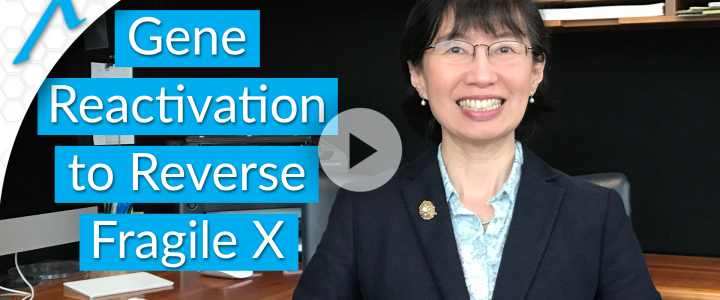FRAXA Research Foundation is dedicated to funding breakthrough research, providing $240,000 to reactivate the FMR1 gene to combat Fragile X Syndrome, with the goal of restoring vital protein function and advancing towards a cure.
Read more2019 Grants
Fragile X Clinical Trial of New PDE4D Inhibitor from Tetra

With a $200,043 grant from FRAXA Research Foundation, Dr. Elizabeth Berry-Kravis completed a successful Phase 2 clinical trial of a PDE4 inhibitor for adult men with Fragile X syndrome. This trial treated 30 males, 18-45 years of age with a new PDE4D allosteric inhibitor from Tetra Discovery Partners using a crossover design, so that everyone got active drug for part of the time and placebo for part of the time.
Read moreRecruiting: Clinical Study of Non-Invasive EEG for Children Ages 2-7
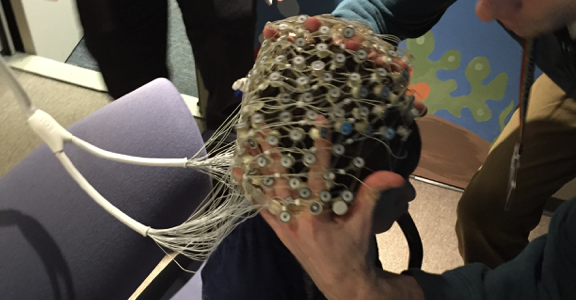
Dr. Carol Wilkinson, MD PhD, and Dr. Charles Nelson, PhD, at Boston Children’s Hospital are recruiting children ages 2-7 years with Fragile X syndrome to participate in a study of brain differences using non-invasive EEG.
Read moreFRAXA Drug Validation Initiative (FRAXA-DVI)

The FRAXA Drug Validation Initiative (FRAXA-DVI) provides speedy, cost-effective, objective preclinical testing of potential Fragile X treatments. FRAXA-DVI uses in-vitro systems, behavior batteries, and gene expression and peripheral biomarker platforms to validate investigational new drugs and repurposed available compounds in Fragile X syndrome (FXS).
Read moreAuditory System Dysfunction and Drug Tolerance in the Fragile X Mouse

FRAXA Research Foundation has awarded $90,000 over 2019-2021 to principal investigator Dr. Jay Gibson and postdoctoral fellow Dr. Andrew Holley at the University of Texas Southwestern Medical Center. They are investigating circuit mechanisms for auditory system dysfunction and drug tolerance in the Fragile X mouse model.
Read moreCholesterol-Dependent Changes in Fragile X Astrocytes

FRAXA Research Foundation has awarded $45,000 to Dr. Maija Castrén, of the University of Helsinki, Finland. Dr. Castren is working with Dr. Iryna Ethell, at the University of California at Riverside, to uncover mechanisms behind beneficial effects of lovastatin and cholesterol-dependent changes seen in the Fragile X brain.
Read morefNIRS to Measure Treatment Response in Young Children with Fragile X
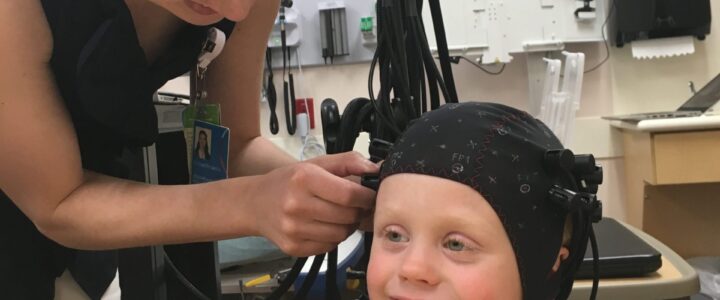
FRAXA Research Foundation has awarded a $90,000 research grant to Dr. Craig Erickson and Dr. Elizabeth Smith at Cincinnati Children’s Hospital to test functional near-infrared spectroscopy (fNIRS), in children who have Fragile X syndrome. fNIRS is safe, non-invasive, and easily-tolerated. It uses light sources and sensors on the scalp to build a heat map of the brain in action.
Read moreTargeting Adiponectin to Treat Fragile X Syndrome

FRAXA Research Foundation has awarded a $30,000 research grant to principal investigator Brian Christie, PhD, and postdoctoral fellows Jonathan Thacker, PhD, and Luis Bettio, PhD, at the University of Victoria. They are investigating whether boosting the hormone adiponectin can effectively treat Fragile X syndrome. This project is funded in partnership with the Fragile X Research Foundation of Canada, which is providing an additional $15,000.
Read moreDeep Molecular Profiling of Fragile X Mouse and Human Cells

FRAXA Research Foundation has awarded $90,000 to Dr. Joel Richter, Principal Investigator, and Dr. Sneha Shah, Postdoctoral Fellow, at the University of Massachusetts Medical School. They are using human induced pluripotent stem (iPS) cells to analyze gene expression in Fragile X syndrome.
Read moreTargeting Mitochondria in Human Fragile X Syndrome Neurons

FRAXA Research Foundation has awarded a $90,000 research grant to principal investigator Dr. Xinyu Zhao and postdoctoral fellow Dr. Minjie Shen at the University of Wisconsin. They are investigating whether drugs which boost mitochondria — which provide the energy for cells — could treat Fragile X syndrome. Dr. Zhao explains in this video.
Read moreCorrecting Sensory Processing in Fragile X Mice by Modulating Kv3.1

FRAXA awarded a $90,000 grant to Carlos Portera-Cailliau, PhD and Nazim Kourdougli, PhD at UCLA to investigate whether a novel drug can rescue sensory processing deficits in Fragile X mice. People with Fragile X have similar problems in sensory processing. This new drug acts on Kv3.1, a promising Fragile X treatment target also being pursued by UK-based Autifony Therapeutics based on FRAXA-funded research done at Yale.
Read moreGene Therapy Translational Studies for Fragile X Syndrome

With this $90,000 award from FRAXA Research Foundation, Drs. Ernest Pedapati, Christina Gross, and student Lindsay Beasley will pursue preclinical gene therapy approaches using AAV (adeno-associated virus) vectors for treating Fragile X syndrome at Cincinnati Children’s Hospital. Dr. Craig Erickson elaborates about this in this video.
Read moreClinical Trial of Metformin for Fragile X Syndrome

Metformin is commonly prescribed to control high blood sugar in type 2 diabetes. With a $50,000 grant from FRAXA Research Foundation, Dr. Artuela Çaku and Dr. Francois LePage are conducting an open-label clinical trial of metformin for children and adults with Fragile X syndrome, at the University of Sherbrooke in Canada.
Read moreDevelopmental Profile of Glutamatergic Synapses in Fragile X

FRAXA Research Foundation awarded a $90,000 research fellowship to Dr. Tue Banke. With this award, Dr. Banke investigate how glutamate receptors at neuronal synapses – essential building blocks of learning and memory – are impacted in Fragile X syndrome.
Read moreReintroducing FMRP via Tat to Reduce Symptoms of Fragile X Syndrome
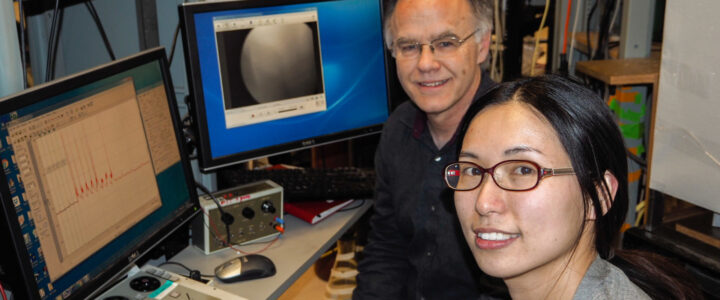
FRAXA Research Foundation and the Fragile X Research Foundation of Canada awarded a grant of $100,000 over two years to Dr. Raymond Turner at the University of Calgary in Alberta, Canada. Dr. Turner and postdoctoral fellow Xiaoqin Zhan, PhD are attempting to reactivate a segment of FMRP to reverse symptoms of Fragile X in a mouse model of the disease to reduce abnormal behaviors.
Read moreEnhancing NMDA Receptor Signaling to Treat Fragile X Syndrome

Dr. Stephanie Barnes investigated the role of NMDA receptors as a FRAXA Postdoctoral Fellow in Dr. Emily Osterweil’s laboratory at the University of Edinburgh from 2016-2018. With an additional year grant from FRAXA, she then continued her work to identify novel targets and test pharmacological therapies in the Fragile X mouse model at the Picower Institute at MIT with Dr. Mark Bear. Results published.
Read moreScreening 2,320 FDA-Approved Drugs for Potential Treatment of Fragile X

FRAXA Research Foundation has awarded a $90,000 grant to Principal Investigator Dr. Sean McBride and Postdoctoral Fellow Dr. Karen Joyce, at Rowan University, to screen all 2,320 FDA-approved drugs on both mouse and fly models of Fragile X syndrome. Those drugs which show promise will be tested in more detail for potential to treat Fragile X in humans.
Read moreCoffee, Tea, and Chocolate: Adenosine Receptors in Fragile X

Caffeine is the most popular smart drug in the world. With a $90,000 grant from FRAXA Research Foundation, Alberto Martire, PhD and Antonella Borreca, PhD in Rome, Italy are investigating adenosine receptors antagonists to treat Fragile X syndrome. Compounds which are able to block adenosine receptors are commonly found in tea, chocolate, and coffee.
Read moreActivity-Dependent Translational Profiling in Fragile X Neurons

FRAXA’s first-ever grant to researchers at the University of California at Berkeley goes to Dr. Nicholas Ingolia and Dr. J. Wren Kim to analyze the proteomics of Fragile X neurons using a newly developed tool which can distinguish the profiles of neurons that are actively responding to signals.
Read moreUnderstanding and Reversing Hypersensitivity to Sounds in Fragile X Syndrome
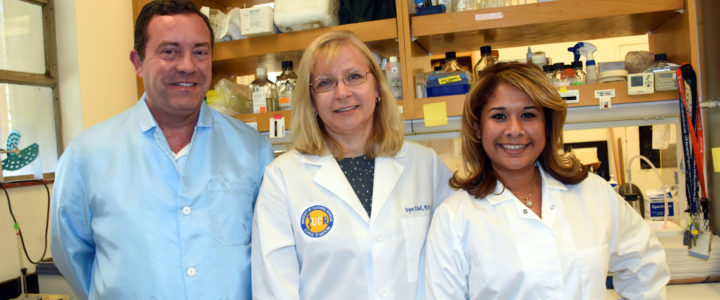
With a $90,000 grant from FRAXA Research Foundation over 2018-2019, Drs. Devin Binder, Iryna Ethell, and Patricia Pirbhoy at the University of California at Riverside aim to understand – and reverse – hypersensitivity to sound in Fragile X syndrome.
Read moreThree-Dimensional Model for Identifying Fragile X Treatments

With a $90,000 grant from FRAXA Research Foundation awarded in 2018, Dr. Peng Jin and Dr. Juhnee Kang at Emory University will develop and analyze Fragile X brain organoids to understand the disorder and identify treatment targets.
Read morePharmacological Tolerance in the Treatment of Fragile X Syndrome
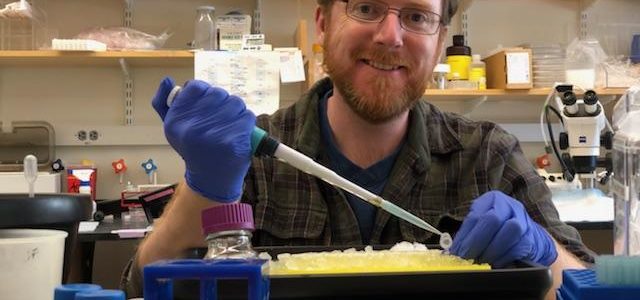
With a $90,000 grant from FRAXA Research Foundation over 2018-2019, Dr. Patrick McCamphill, postdoctoral fellow in Dr. Mark Bear’s lab at Massachusetts Institute of Technology (MIT), is investigating drug tolerance to mGluR5 antagonists, arbaclofen, and other potential Fragile X treatments. He is also exploring ways to overcome it.
Read moreFragile X Clinical Trial of AZD7325 in Adults

With a $51,000 grant from FRAXA Research Foundation, Dr. Craig Erickson conducting a double-blind, placebo-controlled clinical trial of AZD7325 in adults ages 18-50 with Fragile X syndrome at Cincinnati Children’s Hospital. The compound being studied is an investigational new drug from AstraZeneca that targets GABA (A) receptors.
Read moreQuantitative Assessment of the Serotonin System in a Mouse Model of Fragile X Syndrome
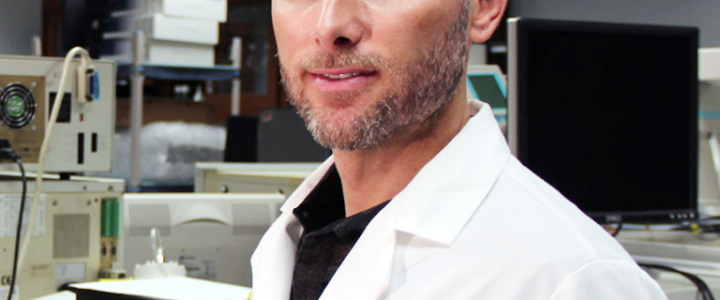
FRAXA Research Foundation awarded a grant of $90,000 over two years to Clinton Canal, PhD. Dr. Canal, previously a research assistant professor at Northeastern University, has just launched his own lab at Mercer University in Atlanta, GA, to focus on Fragile X research.
Read more
